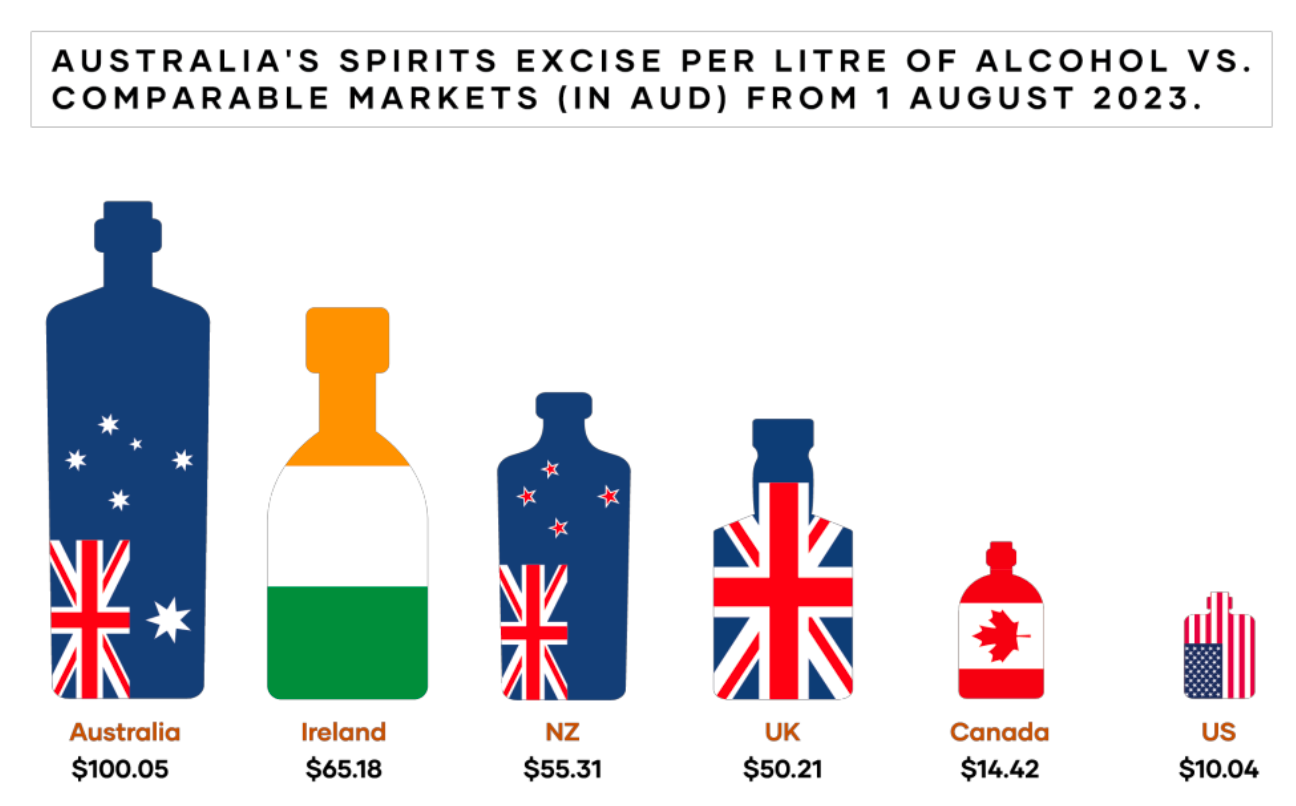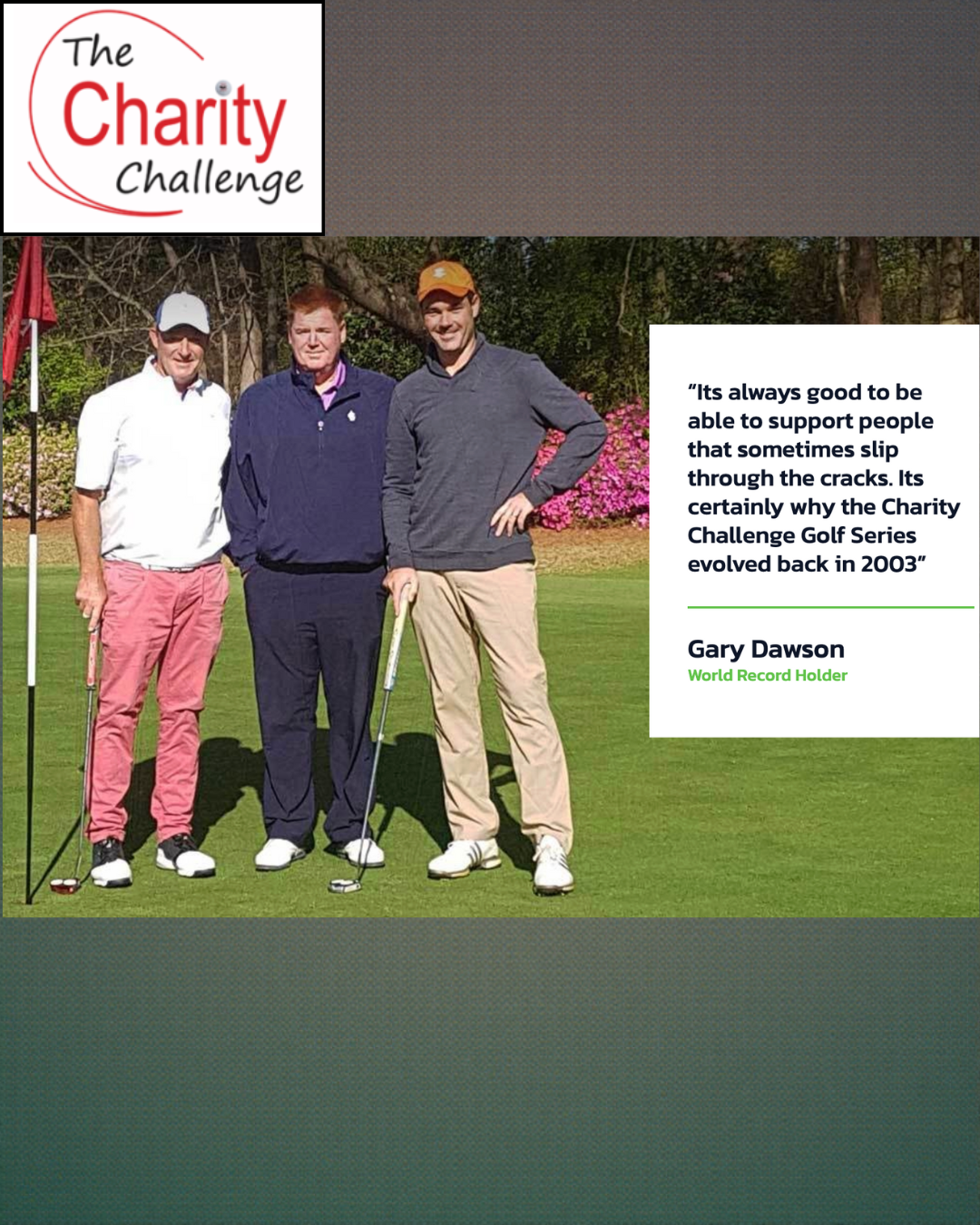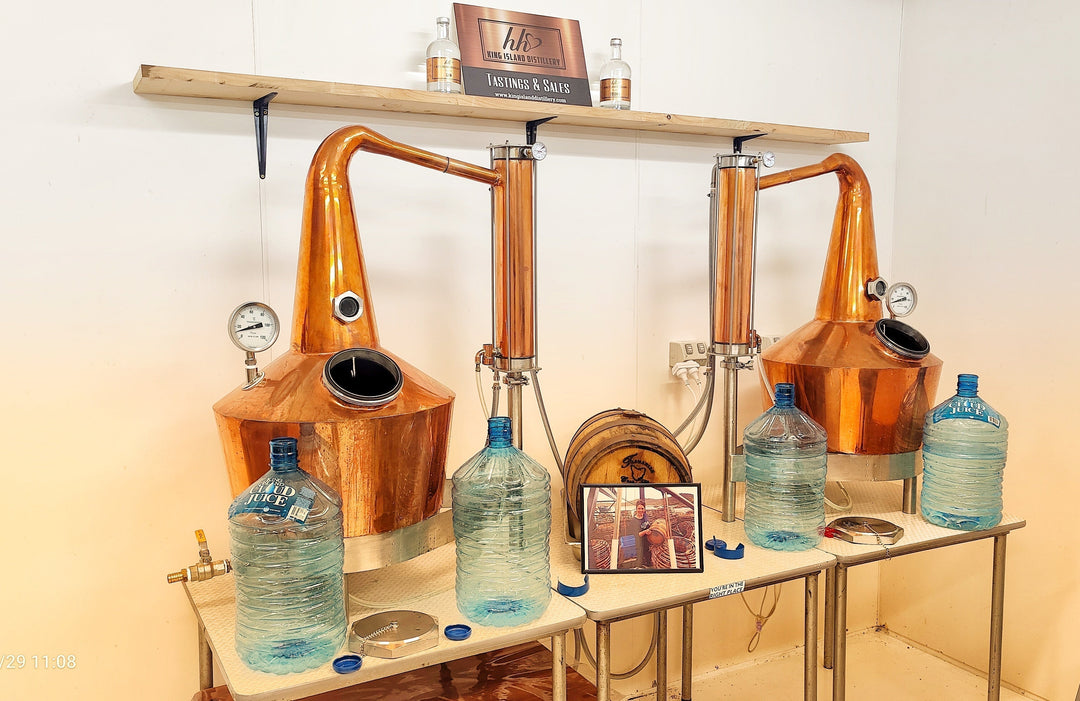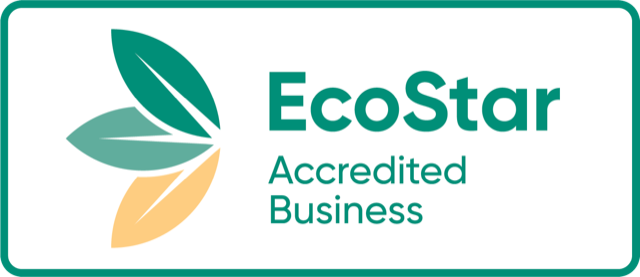Government deflates distilleries as it inflates excise taxes

- Australia's spirits tax is subject to biannual increases based on inflation, with the latest rise pushing it over the $100 per litre of alcohol mark.
- At present, Australia's spirits tax stands as the third highest in the world, creating significant financial strain for distillers and hindering industry growth.
- The burden of absorbing excise increases falls on distilleries, as passing the costs onto consumers may make their products less affordable, limiting business expansion and job creation.
-
The tax on spirits like a gin and tonic is more than double that on beer – and four times the tax on wine.
-
This tax is particularly bad for regional communities, because two-thirds of distilleries are in regional areas.
-
The federal government already collects $5 billion in excise from the spirits industry in Australia per year. Compare that to wine ($1.2 billion) and beer ($2.6 billion). Why are we unfairly discriminated against?
-
Australian Bureau of Statistics data tells us alcohol consumption is at a 50-year low.
-
We are already starting to see insolvencies in this industry, and some businesses are scaling back their operations.

Chart above show excise rate rises from when King Island Distillery established in 2014, through to now being over $100 / LAL.
Dear King Island Distillery enthusiasts,
As we see the many positive developments in Australia's spirits industry, we update you about a concerning setback. The spirits tax, which is adjusted biannually to account for inflation, has once again taken an upward leap, crossing the dreaded $100 mark per litre of alcohol as of 1st August.
Excise rates will increase by 2.2% from 1 August 2023 to $100.05/ LAL for spirits and RTDs (up from $97.90/LAL). This out-of-date and out-of-touch tax system is hindering our industry from reaching its full potential.
At King Island Distillery, we take pride in being part of the thriving distillers community in Australia. However, the incessant increase in the spirits excise poses a significant challenge for producers, consumers, and operators alike. Absorbing every excise increase and passing the burden onto consumers is simply not a viable option.
The latest announcement from the Federal Government confirming the increase came after the Australian Bureau of Statistics released the Consumer Price Index (CPI) figures. This surge was unexpected and is alarming for all spirits manufacturers, as it was projected to occur much later, around 2029. As we strive for a flourishing spirits industry in Australia, we must call on the government to intervene and freeze the tax, supporting the growth of this promising Australian sector.
Greg Holland, the Chief Executive of Spirits and Cocktails Australia, expressed his outrage at the situation. He noted that Australia's spirits tax, already the third highest in the world, will now exceed $100 per litre of alcohol next month. This escalation places an unreasonable burden on distilleries, making a simple gin and tonic subject to more than double the tax of a Great Northern beer. The question lingers - when will this taxing approach come to an end?
Paul McLeay, Chief Executive of the Australian Distillers Association, also emphasised that the current spirits tax is unfair and unsustainable. The growing distilleries face difficulties in hiring new staff, expanding their operations, or accessing new export markets due to the overwhelming impact of this out-of-control tax. It creates a paradox for the government, as they cannot earnestly foster domestic manufacturing jobs, especially in regional areas, while enforcing such hindering tax policies.
For distillers like Cape Byron Distillery founder, Eddie Brook, shares that with every biannual hike, distilleries risk appearing greedy to their loyal customers, making their products less affordable and thereby restricting business growth. This continuous strain on running costs impedes the ability of distilleries to prosper.
The recent excise increase is estimated to cost some of the larger businesses approximately $70,000 per year in lost margin. The impact is tangible - equivalent to a full-time staff member that they may no longer afford to employ.
As we look towards a vibrant future for the Australian spirits industry, we urge the government to heed the calls for reform. Let us unite in our pursuit of a fair and supportive tax policy that enables distilleries to flourish, fosters growth, and sustains the creation of quality spirits that we all cherish.
Together, we can strive for a brighter future and secure the prosperity of the spirits industry in Australia.
Yours faithfully, Heidi Weitjens King Island Distillery
Sources: Australian Distillers Association







Leave a comment